Letter to Shareholders
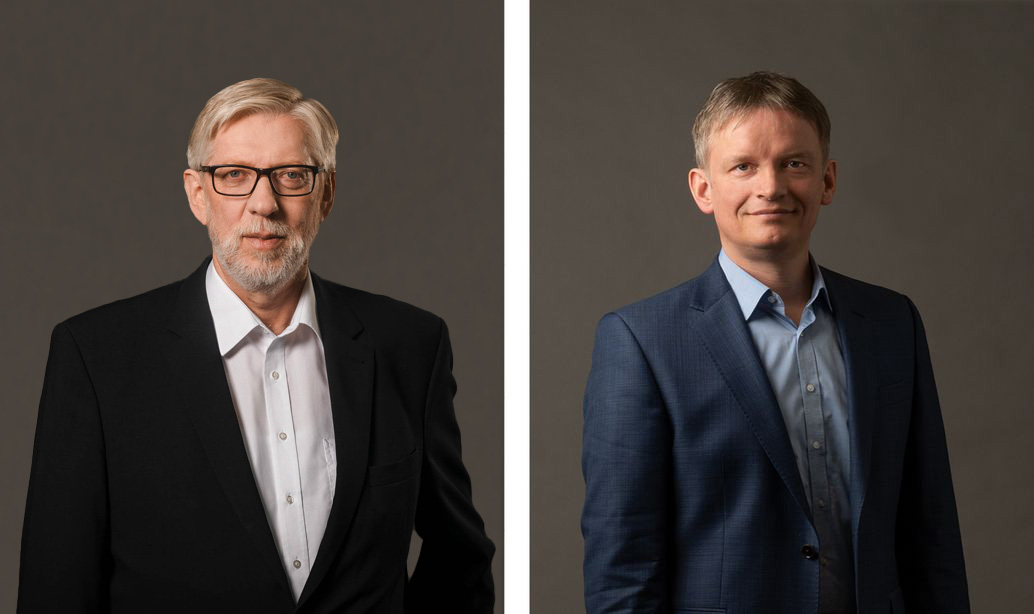
Chairman, Meyer Burger Technology AG
Chief Executive Officer, Meyer Burger Technology AG
Dear Shareholders
It was exactly three years ago that we first talked about realigning the business model at Meyer Burger. We wanted to use the heterojunction/SmartWire technology, which our engineers had spent twelve years developing to industrial maturity, exclusively and to become a manufacturer of solar cells and solar modules ourselves.
Today, we are very pleased to be able to thank you, our valued shareholders, for supporting us so faithfully on this exciting journey, for placing your trust in us during this crucial phase, for believing in the future of Meyer Burger and for joining us in driving the energy transition forward. We are proud to say that the new Meyer Burger Technology AG has found its position in the market. Our premium solar modules are in high demand among our customers and can be sold at premium prices. Our further growth will be built on this foundation.
With a production volume of 321.1 megawatts (MW), we achieved our target for 2022 in times of great challenges. Global supply chains were again disrupted last year by the pandemic and the war in Ukraine. Nevertheless, we increased our solar module output more than tenfold compared to the previous year. There is growing certainty that the production lines at our German sites will be able to achieve the defined nominal capacities in full operation. 830,000 solar modules left the Freiberg factory in 2022 and around 700,000 solar cells are produced daily in Bitterfeld-Wolfen. This figure is expected to be well over one million once the ramp-up is complete.
The ramp-up of the second production line started in September 2022, and individual process steps are currently being finalized. Our experienced team has succeeded in optimizing the processes and significantly shortening the ramp-up time compared to the first line. However, we are still dependent on external suppliers. The situation remains tense for the industry as a whole, especially with delivery times for electronic components running to several months instead of a few weeks. Management is working hard to minimize such risks as far as possible in the future.
For this reason, and in order to meet the steadily increasing demand for faster growth in our manufacturing capacities, we have decided to introduce a uniform product platform for our solar modules. This will enable us to build up manufacturing capacities faster and with less risk in the future. The planned products combine the best of glass-glass and glass-foil modules, namely durability, bifaciality, low weight, sustainable high performance and appealing aesthetics in Black, White and Glass variants. We are thus laying the foundations which will enable us to achieve premium prices for our high-performance modules in the long term.
«In order to meet the steadily increasing demand for faster growth in our manufacturing capacities, we have decided to introduce a uniform product platform for our solar modules. This will enable us to build up manufacturing capacities faster and with less risk in the future.»
The new platform allows for scalability in our new manufacturing capacities and accelerates mass production; for example, it eliminates downtime due to product changes and costly procurement and logistics processes caused by product diversity. Therefore, we are unlocking further potential for reducing manufacturing costs. The combination of supply chain issues and the preparation of production lines for the new platform will result in lower production volumes than previously stated. As we announced on 2 March 2023, we now aim to produce solar modules with a total output of around 800 megawatts in 2023.
One of our main advantages is our machine production which is integrated into the company at the Hohenstein-Ernstthal site. This enables us to optimize new lines quickly. Since 2022, machines used in our module production have been remanufactured at our headquarters in Thun.
For the further expansion in phase 2, the Extraordinary General Meeting on 28 October 2022 approved a capital increase. The gross proceeds of CHF 250 million will enable the company to accelerate its expansion to around 3 gigawatts of production capacity per year by 2024. The expansion of solar cell production is to take place at the Bitterfeld-Wolfen site in Germany and the expansion of solar module production will be in Goodyear, USA. We signed a long-term supply agreement with the US developer of renewable energy projects D. E. Shaw Renewable Investments (DESRI). Under this agreement, we will supply solar modules with an output of between 3.75 and 5 gigawatts (GW) for solar power plants over a period of around five years from 2024. This should enable us to establish the power plant segment as a second mainstay alongside the rooftop segment by 2024.
A completely new topic has been occupying us since last year. Since the Intersolar trade show in Munich in mid-May, the solar roof tile has been one of the hottest topics of conversation around Meyer Burger. Under the name "Meyer Burger Tile", we have further developed the product for which we had acquired the rights from a German engineering firm. Our product managers in Thun took a close look at the solar roof tile and improved it in many respects until the optimum product was created. Our development won the prestigious pv magazine highlight topinnovation 2022 award. The first pilot plant with Meyer Burger Tiles was completed at the end of 2022. Further pilot plants are currently being installed in Switzerland and Germany, and a first distribution partner from the roofing sector has included the product in its portfolio. From the summer of 2023, Meyer Burger Tiles will then be manufactured on our behalf by a company in Europe and will be available in larger quantities. The interest is enormous. The official market launch of the new product is planned for this fall.
Long-term goal on perovskite and industrialization of modules without front contacts
In order to develop the next generation of high-performance solar cells and modules, we brought renowned partners on board at the end of 2022 and concluded multi-year cooperation agreements. Together with CSEM from Switzerland, the Helmholtz-Zentrum Berlin (HZB), the Fraunhofer Institute for Solar Energy Systems (ISE) in Freiburg and the Institute for Photovoltaics at the University of Stuttgart, we are working on the industrialization of perovskite tandem technology. The development of the new production technologies is to be used exclusively for our own production within the scope of Meyer Burger's proprietary business model. In the next few years, perovskite tandem technology should enable efficiencies of over 30 percent in the industrial production of solar cells.
Until then, our R&D teams in Switzerland and Germany are already focusing on the industrialization of so-called IBC modules. IBC stands for Interdigitated Back Contact. These are also based on heterojunction technology. In these modules, the wiring is located on the back of the cell, which allows better utilization of sunlight. In combination with our SmartWire technology, there are significant advantages in terms of efficiency and energy yield. In extensive tests at CSEM, we have been able to analyze the degradation of the future solar modules and are excited to report that it is barely measurable in the trials to date. With a recently constructed pilot plant at the Neuchâtel site, industrialization is entering the next phase.
As the implementation of the new business model progresses, the financial statements show encouraging developments. Sales increased to CHF 147.2 million in 2022, which corresponds to an increase of 269 % on the previous year. Meyer Burger has thus successfully achieved its market entry and laid the foundations for future growth.
The ramp-up of production was still in full swing at the end of the year, which is reflected in the high operating costs relative to sales. Overall, these resulted in an EBITDA 2022 of CHF –34.6 million and a net result of CHF –69.9 million.
The investments in the two new production sites and the ongoing build-up of inventories required for efficient order processing are now very clearly reflected in the balance sheet. Total assets increased accordingly by a significant 46 % year-on-year to CHF 720.4 million as at 31 December 2022.
On the liabilities side of the balance sheet, the successful capital increase of CHF 250 million in November 2022 resulted in a significant increase in equity. The equity ratio is now 59.5 %. With this further capital measure, Meyer Burger is now in a position to make the next important investments in growth and product developments.
«For the development of the next generation of high-performance solar cells and modules, we brought renowned partners on board and concluded multi-year cooperation agreements.»
First female member of the Board of Directors and new CFO
The Annual General Meeting on 5 May 2022 elected Katrin Wehr-Seiter as an independent member of the Board of Directors. She is active as Managing Director/ Partner at BIP Capital Partners, Luxembourg. Previously, she served as Principal at the international private equity firm Permira. After completing her technical studies, Katrin Wehr-Seiter started her career at Siemens AG, where she worked in the field of power generation in Germany and the USA. In addition to her technical background, she has extensive experience in M&A, asset management and investment projects as well as corporate development.
Markus Nikles has been the new Chief Financial Officer (CFO) and a member of the Executive Board since 1 September 2022. Markus Nikles spent more than 20 years in leading positions in finance with a globally-operating Swiss group. He is very familiar with the financial management of international industrial companies, with group and project controlling, liquidity planning and working capital management.
Outlook
Photovoltaics plays a central role in managing the global energy transition. Huge investments are needed to make the economy climate-neutral within the time frame set and to achieve the necessary regional security of supply.
The US was quick to respond. The US Climate Inflation Reduction Act (IRA), enacted in 2022, will provide some USD 370 billion worth of clean energy subsidies, making it attractive for European clean tech companies to cross the Atlantic.
This signal has now been heard in the EU; Ursula von der Leyen, President of the EU Commission announced the Green Deal Industrial Plan at the beginning of February 2023, with which the EU and the EU member states want to devote hundreds of billions of euros to the development of key industries for climate protection – the solar industry is among these six sectors. The instruments include a relaxed state aid framework, which is intended to give EU member states greater freedom to support relevant companies. This essentially reallocates existing funds from previous programs. The EU Commission President called this a “bridge” and announced that further funds will be made available for an EU Sovereignty Fund in the medium term. Negotiations on the scope and design of the Green Deal Industrial Plan will take place in March 2023, at which time it will be possible to say whether it will indeed be a response on a par with the IRAs that can revitalize the solar industry and return it to a critical size in Europe. If the framework conditions are set accordingly, there will be further growth potential for Meyer Burger.
Either way, Meyer Burger is confident because at the individual level, too, demand for rooftop solar systems is rising steadily among homeowners and businesses, because they make them largely independent of expensive electricity from the grid.
Thanks
The political and social environment strongly favored Meyer Burger's new initiative three years ago, but the company's impressive development was only possible because everyone involved gave their best and was not discouraged by the corona-virus, late deliveries of components or other difficulties. Meyer Burger now has around 1,100 employees, and this number is growing every day. This pleases us and gives us confidence that we can continue to grow at a fast pace. Expectations grow with every goal we achieve. We will do everything we can to meet them.
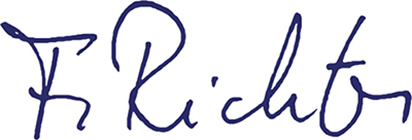
Franz Richter
Chairman
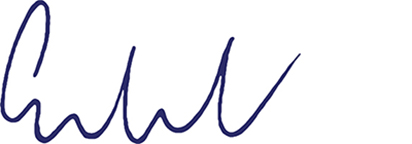
Gunter Erfurt
Chief Executive Officer
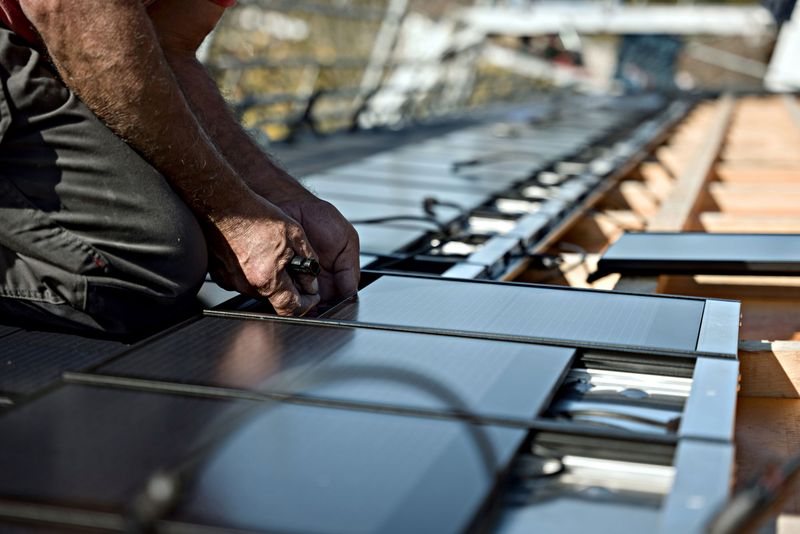
The first pilot system with Meyer Burger Tiles was installed in Switzerland at the end of 2022. The solar roof tiles are scheduled for market launch in the second half of 2023.
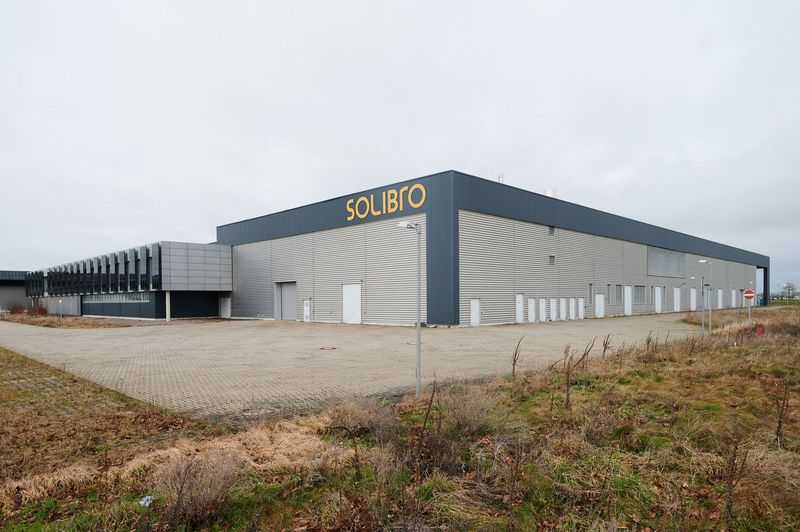
In addition to the existing solar cell manufacturing facility, Meyer Burger has secured another building to grow to 3 gigawatts here at the Thalheim site. Preparatory work for the installation of production machinery inside the building is already underway.
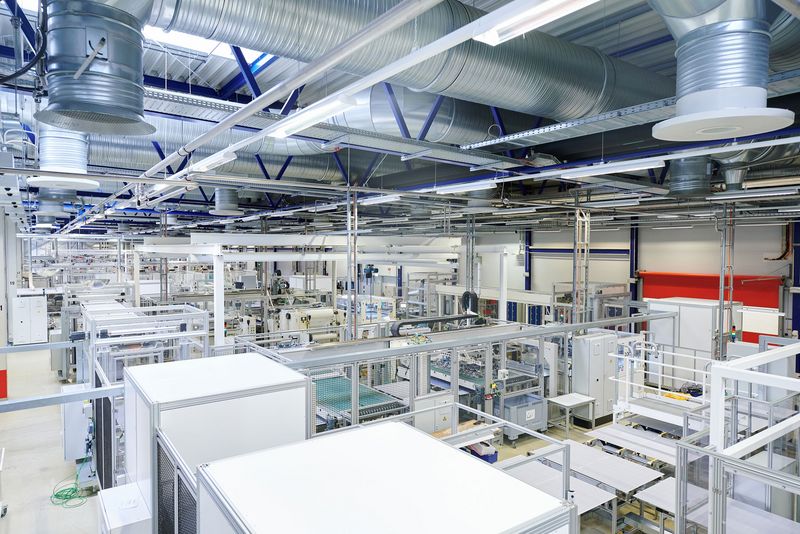
The construction of the second line in Freiberg is almost complete. Thousands of solar modules now come off the production line here every day, which are delivered to solar construction sites all over the world.
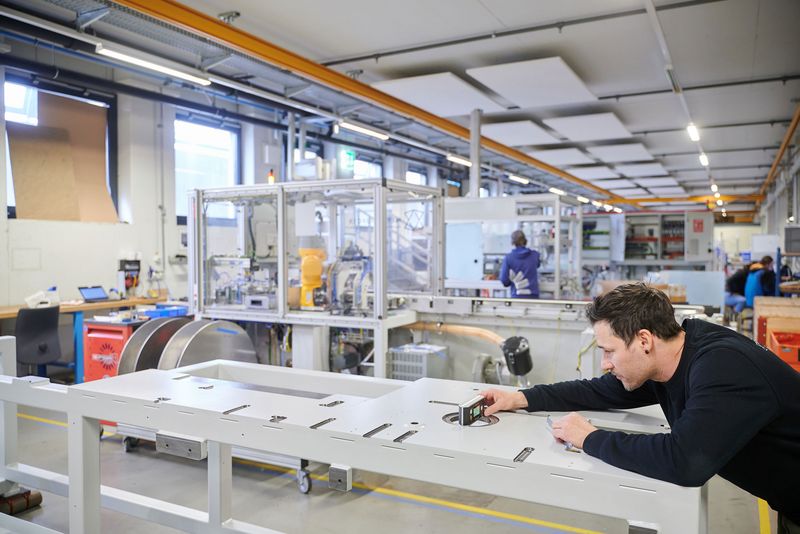
Since 2022, machines have again been built in Thun, which are delivered to the Freiberg or Goodyear sites. On these machines, solar modules with Smartwire connection technology are made.